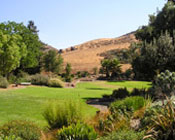Research
 Our department has a large faculty with diverse research interests. Current students learn about research opportunities through our PHYS 220 Seminar course "Introduction to Physics Research." You can learn more by following the links on this page.
Our department has a large faculty with diverse research interests. Current students learn about research opportunities through our PHYS 220 Seminar course "Introduction to Physics Research." You can learn more by following the links on this page.
For information about the Frost Undergraduate Research Program click the link.
Research Areas

Accelerator Physics
Discover the inner workings of humanity's most complex scientific machines. Research opportunities available with CESR at Cornell and the Large Hadron Collider (LHC) at CERN.

Astronomy & Astrophysics
Learn about the frontiers of space and time while searching for extrasolar planets, studying active galactic nuclei, and investigating the sources of nature's most violent events. Research opportunities are available at world-renowned observatories as well as with the VERITAS experiment and the FERMI gamma-ray space telescope.

Atomic, Molecular & Optical Physics
Do hands-on cutting edge science in neutral atom trapping, photonics, and optics, with powerful applications from quantum computing to LIDAR to biophysics.

Computational Physics & Scientific Computing
Write numerical algorithms to solve problems in physics and create new computational tools to explore physical phenomena.
Learn more about Computational Physics & Scientific Computing ›

Cosmic Evolution
Explore and explain the composition, structure, and evolutionary processes and history of the Earth and the universe from the Big Bang to big brains and artificial intelligence

Fluid Mechanics and Physical Oceanography
Explore the world of fluid mechanics and study physical processes in the coastal ocean.

General Relativity, Gravitation and Black Holes
Explore the mind-bending consequences of Einstein's theory of gravity and curved space-time.
Learn more about General Relativity, Gravitation and Black Holes ›

Geology & Geophysics
Unlock the mysteries of our awesome earth with field research opportunities in geological structure and seismology.

Nonlinear Dynamics
Explore the nuanced theoretical and experimental mysteries of mesoscopic matter such as liquid crystals, nonlinear systems, and efficient solar cell research feeding into applied technologies.

Nuclear & Elementary Particle Physics
Investigate the frontiers of knowledge at the very smallest scales of quarks, leptons, and nature's fundamental forces. Research opportunities available with the NIFFTE experiment at Los Alamos National Laboratory, the ALICE experiment at CERN in Switzerland and CUORE at Gran Sasso in Italy.

Physics, Astronomy, & Teacher Education
Become a science educator and make a difference in propelling P-12 STEM education in the 21st century.

Renewable Energy, Appropriate Technologies, & Sustainability
Be involved in cross-cultural collaborative education emphasizing sustainable enterprises and fostering an international community.
Learn more about Renewable Energy, Appropriate Tech, & Sustainability ›

Soft Condensed Matter
Study systems and materials that deform, flow, and otherwise respond sensitively to external influences. This area of physics shares interests with chemistry and biology, mechanical and chemical engineering, and materials science.

Solid State Physics
Explore the nuanced theoretical and experimental mysteries of mesoscopic matter such as liquid crystals, nonlinear systems, and efficient solar cell research feeding into applied technologies.
